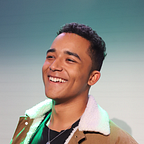How to Get an Elite Consulting Job.
During my freshman and sophomore summers in college, I worked at an elite consulting firm and served several Fortune 500 companies across the US. When I was going through this process an upperclassman broke down all this info for me and now I want to share it with you.
If you are applying for consulting jobs, here’s what to expect:
1. Resume Round
The first screening phase usually only requires you to submit a resume and some personal info such as your name, address, school, and location preferences for the role.
If you’re recruiting from undergrad, there is about a 50% cut here. But don’t worry, here’s some advice on how you can stand out.
Tips:
- Have someone who’s worked at the company look over your resume to align the language with that firm in particular.
- The beginning of each descriptive line should start with a highly engaging verb like “spearheaded”, “launched”, or “mobilized”. Verbs that imply leadership are good too.
- Put the experiences which are most relevant first and the ones which are less relevant lower on the page (for consulting, any business-related student clubs are good to highlight here).
- Your resume should not be longer than one page.
- Choose your office location based on where you would want to live if you get the job. Don’t spend too much time on it though, transfers are possible later.
2. Case Interview
If you’ve made it past the Resume Round, congrats!
At this point, you’ll be invited to a series of interviews. Sometimes they’re spaced out (e.g., one this week, one in two weeks, one in three weeks) and sometimes they’re all at once. The latter format is called a “super day”. The structure of the interview portion consists of a 30-minute Case Interview followed by a 30-minute Behavioral Interview, all within roughly an hour.
Getting your casing down is the most critical skill in the consulting application process. Having friends and mentors that can help you prepare will make the biggest difference in whether or not you get the job.
Tips:
- Find people who have already gotten the job to help you practice your cases.
- It takes about 10 cases to get comfortable and another 10 to feel confident so make sure you get your reps in.
- The interviewers are testing for structure thinking here so everything you do in the case should display those abilities.
- When you get to the math section, write out your equation with words not numbers to start. Only after you’ve run your setup by the interviewer should you ever actually dive into the math.
- Use an Issue Tree to structure the case at the beginning.
3. Behavioral Interview
The second half-hour (although sometimes they switch the order) of each session is the behavioral or personal interview portion. Basically, they will ask you a bunch of leading questions to which you will respond with stories from your past experiences. They’ll be looking to draw insight into who you are and how you’d act if you were hired.
For example, they might ask you to “Share a time in which you displayed entrepreneurial drive.”
Another common prompt is: “Tell me about yourself.”
I should note that McKinsey & Co., Bain, and BCG all have slightly different approaches here in the type of stories they look for and the kinds of follow-up questions they ask.
Tips:
- Make sure you directly answer the question/prompt.
- Be structured in the way you tell the story (STAR method) and pay particular attention to the end where you should reflect on how you grew from each experience.
- McKinsey in particular will usually do a deep dive on one story whereas BCG will often ask you about many experiences.
- Each response should be about 2min long.
- Draw your stories from professional or academic experiences if you can.
Note:
This is a brief breakdown of what I went through and what I saw my peers go through when recruiting for consulting as an undergraduate student at an Ivy League School. While I hope it is a helpful roadmap for some, I know that it may not be a relevant resource for others who haven’t been given access to these types of career pipelines.
Even for students who attend schools that are recruited for these elite industries, the system often disadvantages women, students of color, and those from lower socioeconomic backgrounds. Click this link to see how this affected me and why I launched a company to help to change that.
To learn more or to get any specific questions answered, shoot me an email at jailany.thiaw@connectupskill.com or visit Connect UPskill — a company I started to help students like you make sense of the recruiting landscape.
